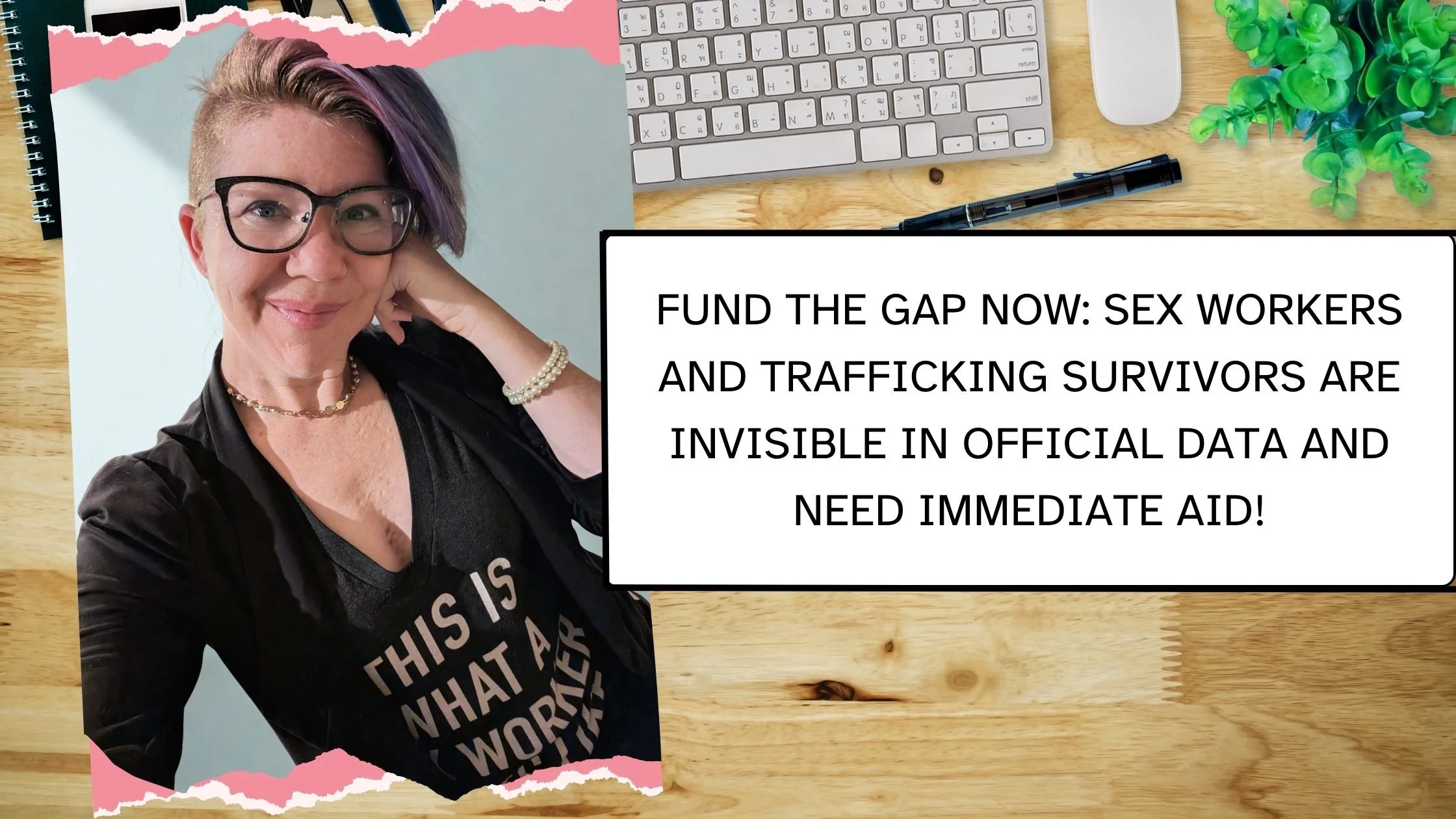Fund the Gap Now: Sex Workers and Trafficking Survivors Are Invisible in Official Data & Need Immediate Aid
Ash Miller - Interim Executive Director
Let's have a real "chat" right now, shall we? Times are hard out there. There are numerous other statistics that we will continue to see regarding communities in need, seniors, children, and veterans. Keep in mind that the statistics around sex workers AND trafficking survivors are basically never right and typically lower than reality. So you're not likely to see accurate information about the number of sex workers receiving SNAP benefits, or trafficking survivors being assisted by HUD. They are often the most invisible populations, and for very deliberate, structural reasons.
WHY? The Structural Silence
The undercounting of sex workers and trafficking survivors is not an accidental oversight; it’s a systemic failure rooted in the very institutions tasked with collecting the data.
Because the sources that put those numbers out there in the biggest ways include the Department of Homeland Security and the FBI, which collect and publish data, especially related to trafficking and arrests.
It often puts a sex worker or trafficking survivor at GREATER risk to report because of the way many laws are written.
The legal status of sex work in different regions affects data collection methods and the ability to accurately count individuals.
The social stigma associated with sex work can make it difficult for people to participate in surveys or for researchers to gather accurate information.
There can be different definitions of sex work, trafficking, and exploitation, which can lead to varying statistics from different organizations.
Different research methods and a lack of comprehensive data collection can lead to significant variations in the estimated numbers of people involved in sex work or trafficking.
The consequence is a statistical illusion. Research supported by the National Institute of Justice (NIJ) suggests that official human trafficking data may significantly understate the extent of the crime in the United States. In some jurisdictions studied, the official trafficking numbers represented as little as 14% to 18% of the potential total victims. Gaps in Reporting Human Trafficking Incidents Result in Significant Undercounting.
The High Price of Criminalization and Secrecy
The criminalization of sex work is perhaps the single greatest driver of the data deficit, creating an environment where individuals are actively discouraged from seeking help or reporting abuse.
Fear of arrest, prosecution, and the severe collateral consequences of a criminal record force many sex workers to operate in secrecy. This isolation directly increases their risk of violence and exploitation from clients or even law enforcement. When an individual is assaulted or robbed, the threat of being charged with a sex-work-related offense often outweighs the need for police protection, ensuring the crime goes unreported—and uncounted. As one study highlights, the fear of legal repercussions forces sex workers into more dangerous, isolated locations, impeding the use of safety and harm reduction strategies and making them less likely to report violence. The Harmful Consequences of Sex Work Criminalization on Health and Rights.
This system actively fosters a climate of mistrust, making it nearly impossible to capture the true prevalence of violence, let alone the population size.
Blocked from the Safety Net
Beyond the violence, the statistical invisibility translates into a denial of basic, life-saving resources. When we talk about sex workers or trafficking survivors accessing federal assistance like SNAP (food aid) or HUD (housing), the legal and administrative barriers are immense.
Accessing publicly funded housing is notoriously difficult because programs often require criminal background checks, credit history, and a stable employment history. FAQ ON SERVICE PROVISION FOR HOUSING SURVIVORS OF TRAFFICKING.
Criminal Records: Trafficking survivors are often forced to commit crimes while being exploited. A resulting criminal record acts as an immediate disqualifier for housing and certain benefits.
Lack of Documentation: Traffickers frequently take or destroy identification documents (IDs, Social Security cards) and financial records (pay stubs). Without these, survivors cannot prove identity or income, which are necessary steps for accessing federal aid.
Stigma and Trauma-Informed Care: Furthermore, survivors who also struggle with mental health challenges or substance use disorders (SUDs)—issues commonly stemming from the trauma of exploitation—face intense stigma from service providers. This can lead to shelters and programs creating restrictive, non-trauma-informed environments that mirror the control they experienced under a trafficker, pushing them away from the help they desperately need. Sex Trafficking and Substance Use: Identifying High-Priority Needs Within the Criminal Justice System.
Until our systems prioritize safety and support over punishment and bureaucracy, these communities will remain tragically uncounted, underserved, and continually at risk. We can use YOUR support today to continue to help those in communities left out of the room, out of the statistics, out of the conversation, and often blocked from access to resources.
Support the fight for visibility and access
https://www.thecupcakegirls.org/donate


